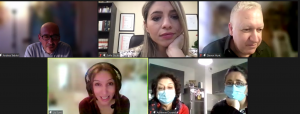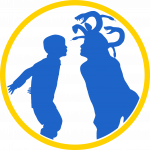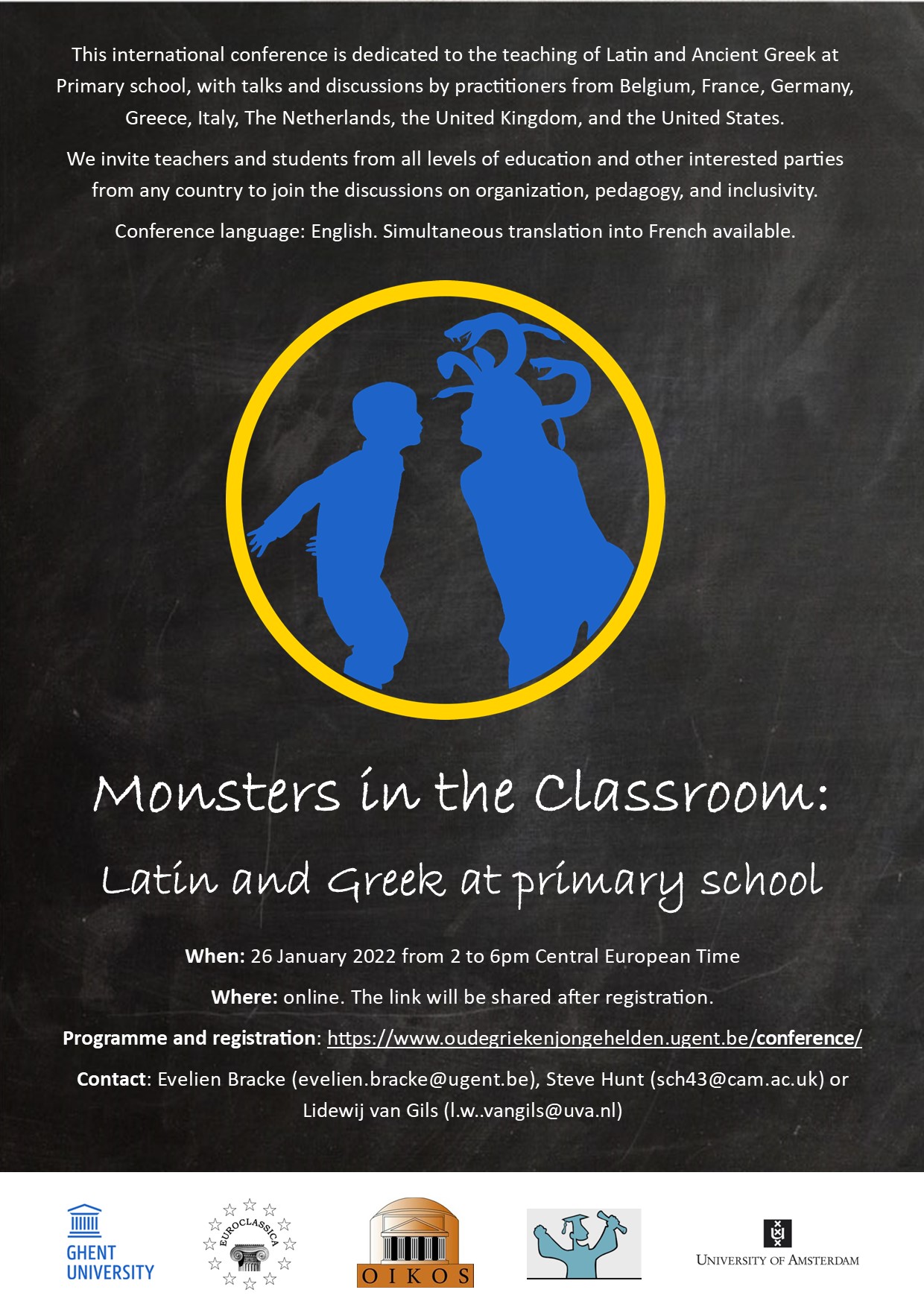This report was written by Corine van den Bergh and Meike Rozenbrand (Leiden University), as part of the collaborative project by Ghent University, Leiden University and the National Museum of Antiquities (Leiden).
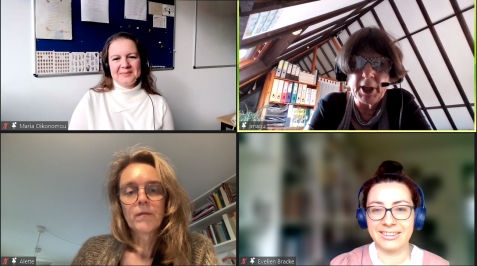
How can Latin and ancient Greek support in the social and academic development of pupils at primary school? The recent conference ‘Monsters in the classroom: Latin and Greek at Primary School‘ addressed this question. And what wonderful answers we got! Enthusiasm and ingenuity were clear in every presentation, and proved very contagious for the more than eighty participants from twenty countries.
Evelien Bracke (UGent), who co-organized the conference together with Steven Hunt (Cambridge) and Lidewij van Gils (UvA), kicked off with an discussion of the approach of the Ancient Greeks – Young Heroes project. Many children who grow up in poverty never get the chance to study ancient Greek or Latin because they are encouraged less or deemed less capable by their environment. Unfortunately, poverty among children in Europe (and in the rest of the world) is increasing and with it this educational inequality. That is why the aim of the Young Heroes project is to make ancient Greek accessible to all children ages 10-12 years. In practice, this means that accessible lessons are made, with no testing, but plenty of opportunity for reflection by means of, for example, creative assignments or a game. Also, nothing is explained theoretically, but all new information is immediately put to practical use.
After Evelien’s plea concerning the relevance of classical languages at primary education, several teachers gave their presentations. They talked about how they organize the lessons at primary school, how they motivate children to start learning these difficult languages, and how classical languages help to promote inclusivity.
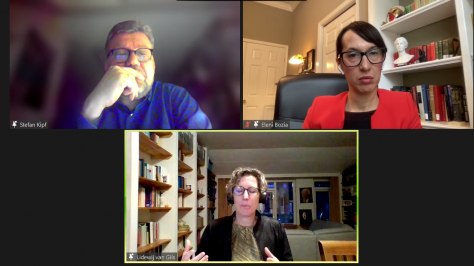
Organization and collaboration
Teachers from Amsterdam and the United Kingdom presented projects in which secondary school pupils and university students are taught how to teach at primary school. This gives them valuable teaching experience in which they learn to communicate at a different level than they are used to. Primary school pupils gain confidence when they can study an exciting subject such as Latin or ancient Greek. In addition, they often come into contact for the first time with secondary school students or students who do classical languages at university level. As a result, the distance to such an exclusive educational direction is becoming smaller and smaller. The hope of Alette Rosing (teacher in Amsterdam) is that this will reduce the barrier to entry to the Dutch gymnasium (secondary school level where classical languages can be studied).
Didactics
In the next session, teachers from different countries shared their ideas on how to make lessons attractive. For example, Liz Syed (UK) uses ‘Movie Talk’. This means that she plays a video and starts a conversation with the pupils on the basis of it. She makes short, understandable Latin statements and asks questions about the content of the film. Others create songs to different Latin or Greek texts and make sure there is a chorus, so that even the children who find it more difficult can feel involved. In Italy, Latin was long taught to pupils through inclusive mythology, although that project was unfortunately discontinued. In Athens, children in paid after-school classes are taught ancient Greek at archaeological sites – how we would love to be there!
Inclusivity
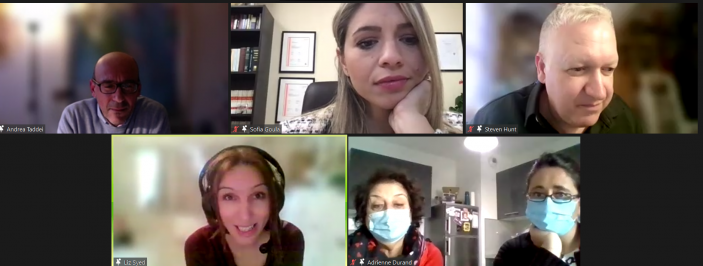
Although most lectures already mentioned inclusiveness, it was good to focus on this important theme in the last panel. An interesting presentation by Professor Eleni Bozia (University of Florida) taught us about the power of mythology to help girls with their self-confidence. Finally, the talk by Professor Stefan Kipf (Humboldt-Universität Berlin) about the Pons Latinus project in Germany, which teaches Latin to pupils with a migration background, was also surprising. Latin is used there as a bridge language: by studying Latin, students become more aware of German (their second language). This improves their active language skills. So, classical languages can be an influential factor in integrating into a new culture!
Much more could be said about this fantastic congress, but there is not enough space for that here. Fortunately, all lectures have been recorded, so if you’re curious, you can find them on the Euroclassica website!
During the Dutch Week of Classics, Dutch-medium online lessons will be made available.
You can find out more about this on the event website from early March.
